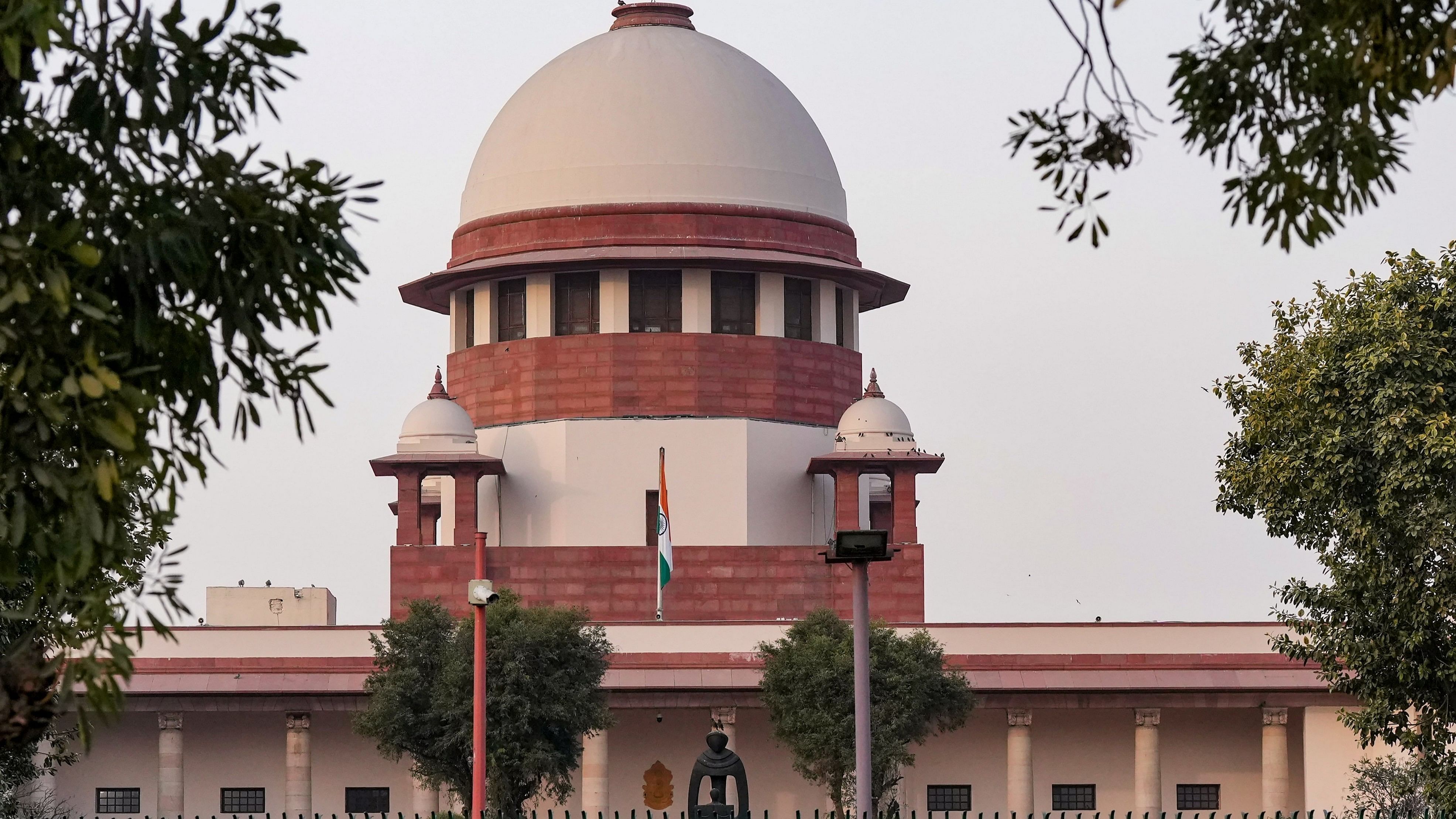
The Supreme Court of India.
Credit: PTI File Photo
The recent Supreme Court ruling that criminal cases should not be registered against journalists merely because their writings are perceived as criticism of the government is a positive development for press freedom in India and the world’s largest democracy. Notably, the ruling emphasised that such actions violate the journalists’ fundamental right to free speech.
A two-judge bench, on October 4, passed the judicial order while barring the Uttar Pradesh police from taking coercive action against journalist Abhishek Upadhyay for his article on caste dynamics in bureaucrat appointments in the state.
“In democratic nations, freedom to express one’s views is respected. The rights of the journalists are protected under Article 19(1)(a) of the Constitution of India,” the bench of Justice Hrishikesh Roy and Justice S V N Bhatti said. “Merely because the writings of a journalist are perceived as criticism of the government, criminal cases should not be slapped against the writer.”
The ruling is timely and laudable, serving as a reminder to reflect on the dismal state of press freedom in India and the challenges journalists face.
In recent years, media professionals have been routinely obstructed from performing their duties through intimidation, raids on newsrooms, police interrogation, notices, detention, first information reports, arrests, and even physical assaults. In Kashmir, journalists have been booked under the draconian Unlawful Activities Prevention Act.
It is a sad irony that despite being the largest democracy, with constitutional guarantees of freedom of speech and expression and a diverse media landscape, Indian journalists are constantly harassed and threatened.
More recently, a number of journalists have left prominent media houses due to various pressures, including changes in ownership and stifling work environments. Many senior news anchors, including the founders of India’s first private channel, NDTV, have resigned in recent months. Such a dire scenario, prevalent for some time now, constricts journalism and stifles the free flow of information in a democracy.
Unsurprisingly, India ranks 159th out of 180 countries in the 2024 World Press Freedom Index released by Reporters Without Borders (RSF), an advocacy group for journalists. India was ranked 161 in 2023. The two-rank upgrade was “misleading,” said RSF, because the change in ranking was due to worse falls by countries previously above India. India “was pushed up two places despite recently adopting more draconian laws. Its new position is still unworthy of a democracy,” the RSF report said.
“With violence against journalists, highly concentrated media ownership, and political alignment, press freedom is in crisis in the world’s largest democracy,” it added. Several of India’s neighbours have better rankings. Pakistan is at 152, Sri Lanka at
15, Nepal at 74, and the Maldives at 106.
The sad state of freedom of expression in India and the prolonged incarceration of a large number of journalists, writers, and social activists pushed a group of eminent personalities earlier this year to draw the world’s attention on how India’s “democratic tradition is being fundamentally undermined.” The group included novelist Amitav Ghosh, literary theorist Gayatri Chakravorty Spivak, Professor Akeel Bilgrami, and others.
Separately, supporting his “friends,” Nobel Laureate Amartya Sen expressed his “sense of indignation at this basic violation of human freedom in my own country.”
As journalists face new challenges every day, including violence and threats to their lives, and given India’s vast media landscape, India would do well to emulate countries such as Norway that prize their democracy and freedom of expression. In 2022, Norway set up a special commission to conduct comprehensive reviews on conditions of freedom of speech and look specifically into safeguarding journalists and come up with ways to curb fake news and hate speeches.
As we move ahead, it is hoped that not only the government but also citizens realise the vital role of a strong and independent media so essential for good governance and social progress in a democracy. The least they can do is allow journalists to do their work of reporting without having to face constant press freedom violations, violence, threats, arrests, deaths, and other impediments.
On its part, the historically free and vibrant press in India must strive relentlessly to remain independent and impartial, speak truth to power, and not bow down to pulls and pressures. Only then can it truly be the country’s fourth estate.
Lastly, the Supreme Court should be commended for its free and fair verdict in upholding press freedom. Such rulings provide the citizens with the guarantee that justice is carried out impartially, reinforcing their trust and confidence in the judiciary.
(The writer is a Bengaluru- based independent journalist)